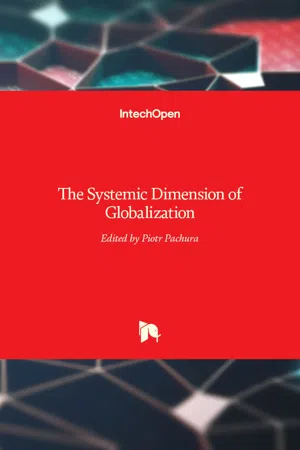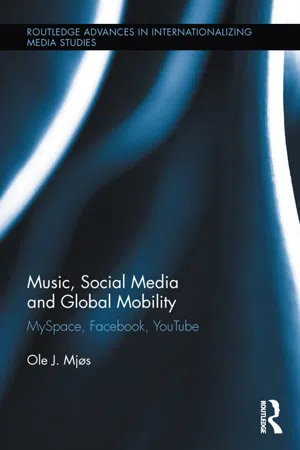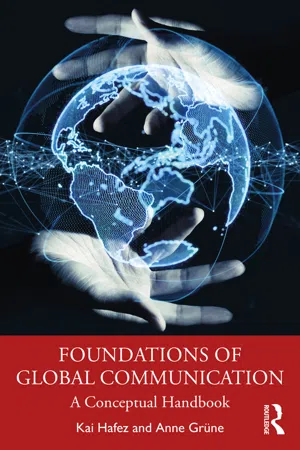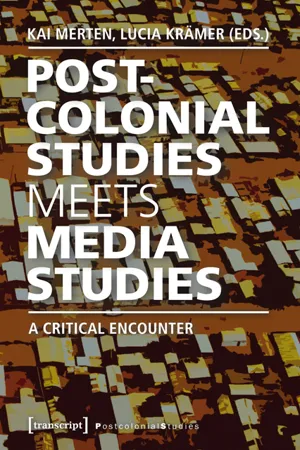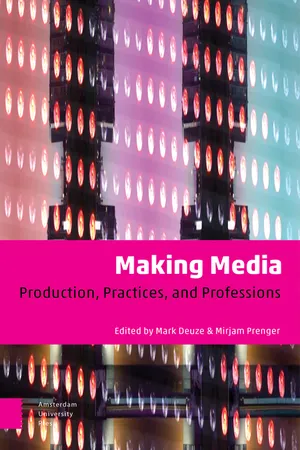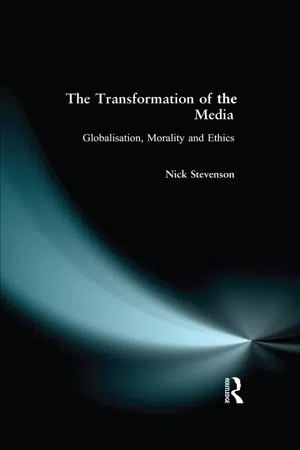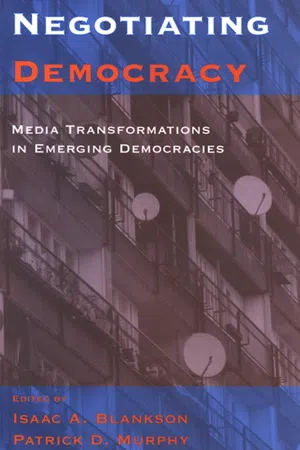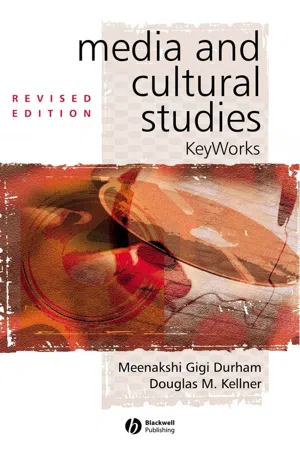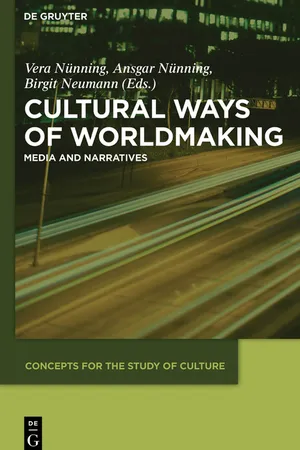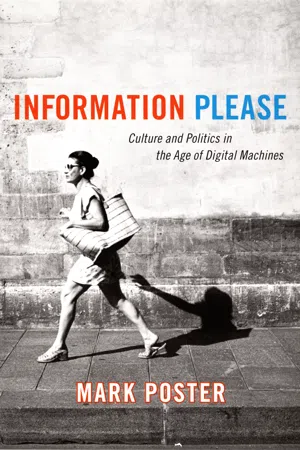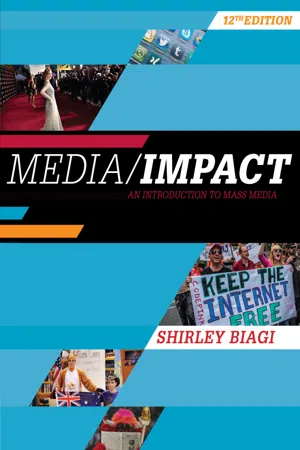Social Sciences
Global Media
Global media refers to the interconnected system of communication and information dissemination that spans across national borders. It encompasses various forms of mass communication, including television, radio, newspapers, and the internet, and plays a significant role in shaping public opinion, cultural exchange, and the dissemination of news and entertainment on a global scale.
Written by Perlego with AI-assistance
Related key terms
1 of 5
11 Key excerpts on "Global Media"
- eBook - PDF
- Piotr Pachura(Author)
- 2011(Publication Date)
- IntechOpen(Publisher)
Severe scepticism concerning the notion of Global Media has also been expressed by scholars within the political economy tradition who claim that Global Media are in fact better described as Western or American media, and only contribute to maintaining Western dominance (e.g. Herman & McChesney, 1997). Some authors are critical of the very idea of globalization, of the way the concept has developed 1 The term “transnational” is here used to describe events, technology, processes, connections, etc. which transcend nation-state borders but do not necessarily encompass the entire globe (Hannerz, 1996). The Systemic Dimension of Globalization 126 and been used in the social sciences (e.g. Calhoun, 2007; Sparks 2007a, 2007b). Thus, within the field of Global Media studies there is an ongoing conflict between the “globalists,” proponents of the fluidity argument, and the “sceptics,” who pursue the stability argument (Cottle 2009: 30f). Nonetheless, these two positions – their obviously conflicting views notwithstanding – have in common one fundamental and largely taken-for-granted assumption about Global Media: Global Media are interpreted as media networks or technology whose nature is global (or at least transnational) in terms of geographic reach. I would propose, however, that having global reach is not a necessary condition of Global Media. From a discourse theoretical perspective, an emergent trajectory of the research field (Cottle, 2009), “global” is instead understood as a discursive feature. From this point of view it could be argued that Global Media cannot be reduced to transnational media networks; a global discourse might develop in any kind of media, be it local, national, or transnational, as well as in any kind of media content – local, domestic, or foreign (Berglez, 2008; Olausson, 2010). Any medium might, in fact, be labeled “global” if it provides its audiences with a global interpretative framework. - eBook - ePub
Music, Social Media and Global Mobility
MySpace, Facebook, YouTube
- Ole J. Mjos, Ole Mjos(Authors)
- 2013(Publication Date)
- Routledge(Publisher)
2 Media Globalization and Global Social Media
Research on the relationship between media and globalization has been preoccupied with exploring traditional audiovisual spaces created by the film and television industries. While an ‘active audience’ has been able to choose television programming from a rapidly growing number of television channels, and benefits from watching these media in numerous ways, these audiovisual spaces still provide very limited opportunities for individual media users’ actual participation and input. However, the way the relationship between media and globalization has evolved has given rise to global social media as facilitators of new online spaces. While these spaces exist within corporate and contested environments, they provide increased potential for participation of the media audience and users. This development is particularly visible within the global social media and music nexus emerging since 2005. In order to grasp the theoretical consequences of these recent transformations within the media and communications industry and the emergence and take-up of global social media, it is important to look at how the relationship between media and globalization is understood and defined.Media globalization is closely tied to how the development of a Global Media and communications infrastructure has facilitated increased opportunities for cross-national communication and the distribution of media and communication across the world (Katz, 2005; Kraidy, 2005; Rantanen, 2005; Thussu, 2000/2006; Flew, 2007). Drawing on Tomlinson’s general suggestion that the “broad task of globalization theory - eBook - ePub
Foundations of Global Communication
A Conceptual Handbook
- Kai Hafez, Anne Grüne, Alex Skinner(Authors)
- 2022(Publication Date)
- Routledge(Publisher)
The residual local ties in all forms of global mass communication are present in media that view themselves programmatically as “Global Media” and whose existence is often regarded as evidence of a transnational media system – though ultimately this is not the case. The television channels CNN, Al-Jazeera English and BBC World News, for example, operate worldwide, but are tied politically to their home systems. This is even clearer in the case of so-called “international broadcasting”, that is, media established by states that broadcast in a variety of languages (such as Deutsche Welle, Voice of America, RT and BBC World Service) and that cannot deny their political mandate as part of their home countries’ public diplomacy. Even in the twenty-first century, a Global Media system not tied, in one way or another, to specific nation states is still largely a utopia (Hafez 2007a, p. 13).In order to understand the basic structure of global mass communication, it is therefore useful to distinguish between three different dimensions (Figure 2.1 ). Global mass communication is not a self-contained global system, but consists of- national media systems (especially foreign coverage)
- that make use of international communication flows (generated by news agencies, foreign correspondents, imports/exports, and so on) and
- that are supplemented by individual transnational media structures (global ethics, joint productions, cross-border reception and regulations).
Figure 2.1 Dimensions of global mass communicationThe key maxim here is that, at all levels, the system of the mass media and journalism is still shaped more by the nation state than by global forces (Hafez 2002a, vol. 1, p. 134ff.). As a rule, the prevailing features are a journalism imbued by national ethics and socialization (micro-level), national forms of organization and ownership structures (meso-level) and national audiences and environmental influences (macro-level). For the most part, globalization has remained structurally weak in the mass media and generally speaking there is no significant cross-border convergence of media systems.At the same time, both international communication flows and transnational substructures may well be dynamic. According to our basic theoretical model, namely the system-lifeworld-network approach, whether national systems or globally influenced processes have a greater impact on media discourse cannot be shown without empirical investigation. Furthermore, while it is unlikely that the primacy of national media systems will end before the nation state dissolves worldwide, which is improbable any time soon, we cannot rule out systemic change in the mass media in future. - eBook - PDF
Postcolonial Studies Meets Media Studies
A Critical Encounter
- Kai Merten, Lucia Krämer, Kai Merten, Lucia Krämer(Authors)
- 2016(Publication Date)
- transcript Verlag(Publisher)
While media may compete in a destructive fashion, as described above, multimedia collaboration may help improve the quality of each individual medium. The Internet as a source for journalism is surely the perfect example. Yet here too it is crucial to distinguish theoretically between technologically possible and actually practiced use. 48 | K AI H AFEZ Connectivity may ultimately occur within global communication not only be-tween producers and consumers in various nation-states and cultural areas – that is, inter nationally and inter culturally – but also via a trans national (or cultural) media system. Here, media and media businesses would no longer have a clear-cut national base, but would emerge as ‘global players’. The idea of a world linked through communication is anchored in the assumption that globalization is more than the sum of the links between its components. The structure of the system underlying the Global Media landscape would change if new super-systems similar to the United Nations or large NGOs such as Greenpeace de-veloped in the media field. The media are in principle also capable of transna-tionalization, so that, alongside national systems networked with one another, a second global system might also arise. Contemporary notions of what such a transnational media system consists of are, however, still very nebulous. Apart from a few global agreements brought into being by the major transnational trade organizations such as the World Trade Organization (WTO) (in the copyright protection field for instance), there are only a few transnationally active corporations that can be called ‘global play-ers’. Regardless of the existence of such businesses, transnational media, that is, programs and formats, are extremely rare. CNN, frequently mentioned as the perfect example of a leading global medium that encourages exchange of polit-ical opinion worldwide, by concentrating on transnational programs, seems to come closest to fitting this vision. - No longer available |Learn more
Making Media
Production, Practices, and Professions
- Mark Deuze, Mirjam Prenger, Mark Deuze, Mirjam Prenger(Authors)
- 2019(Publication Date)
- Amsterdam University Press(Publisher)
163 12. Global Media Industries and Media Policy Terry Flew and Nicolas Suzor Media regulation in the digital age poses distinct challenges. Many national gov- ernments are seeking to assert control over what their citizens can access online, whereas intermediaries such as Facebook and Google strive to turn the internet into a global platform. This chapter discusses how national and global forces inter- sect in distributing media across territorial boundaries. Introduction It has long been a truism of communication and media studies that the media are global. The Canadian communications theorist Marshall McLuhan spoke of a ‘global village’ that was increasingly unif ied through broadcast technologies, and a variety of media events have sought to enact this globality, including the Olympics and the FIFA World Cup sporting events, concert events such as Live Aid (1985) and Live Earth (2007), and charity singles such as 1984’s famous ‘We Are the World’. Chris Rojek has described the Global Media event as ‘the most heart-warming goodwill newsletter of modern times’, where ‘we are conscious of being part of an international community in which pre-ordained divisions of race, class, religion, sexual orientation, politics and the vulture logic of capitalism appear to magically vanish’ (Rojek, 2012, p. vi). The spirit of the global ecumene invoked by Global Media has carried over into the digital space. Founder and CEO Mark Zuckerberg termed his 2017 mission statement on how Facebook can be a force for good in the world ‘Building Global Community’ (Zuckerberg, 2017). Addressing his statement to ‘our community’, Zuckerberg describes Facebook’s mission as being on ‘a journey to connect the world’, as a company that ‘stands for bringing us closer together and building a global community’. - eBook - ePub
The Transformation of the Media
Globalisation, Morality and Ethics
- Nicholas Stevenson(Author)
- 2014(Publication Date)
- Routledge(Publisher)
However, to become engaged in such talk is often to encounter a lapse of memory as to how previous generations have sought to think about global relations. In this respect, I think we can point to two main traditions evident within media studies that are focused around questions of media imperialism and the technical capacities of media technology as information storage and shifting devices. These two approaches gained intellectual prominence in the 1960s when technological optimists like Marshall McLuhan talked of a global village, and more pessimistic, politically radical voices warned that the expansion of media systems actually lead to the cultural dominance of the ‘Third World’ by Western consumerism. Seemingly the backdrop to these debates was the global prominence of Western forms of culture, and technology becoming apparent in trans-national media events such as the Vietnam War, the space race and large-scale music festivals such as Woodstock. Since the 1960s, global concerns have made a dramatic return and in part reinvention. What is interesting is that while McLuhan’s zany predictions concerning a Global Media village were quickly dismissed three decades ago, today they seem to be back in favour. On the other hand, questions associated with the cultural dominance of Western societies that can be connected with a political economy of mass communications systems are currently granted a more peripheral significance. If anything today there seems to be a bias against thinking about the ways that media cultures might reinforce hegemonic structures and patterns of dominance. This is in part attributable to some of the more obvious failings of the older models of media imperialism and a retreat from class analysis more generally. Here I want to look for ways of rejoining media theory with an understanding of the material structures of late capitalism and the symbolic spaces and geographies that can be associated with them. To start with, as I have indicated, this will lead me in two separate directions looking at earlier models of media imperialism and what McLuhan termed media implosion. This will connect into current debates by post-modern and post-colonial concerns in respect of the impacts of media cultures. These ideas will then be reflected back upon those earlier formulations before opening up some final critical remarks. From what I have said, it will be argued that to represent global communications systems adequately, it is insufficient to remain at the level of their continued capacity to structurate global communicative relations or of their ability to introduce cultural forms of disorder. Moreover my task remains the careful unfolding of the dialectical relations between the two perspectives.Media and cultural imperialism reconsideredMedia imperialism is usually discussed with reference to the broader theory of cultural imperialism. This has proved to be a notoriously difficult concept to define. John Tomlinson (1991) has identified at least four (possibly five) ways of talking about cultural imperialism with media imperialism only one aspect. These include definitions of cultural imperialism: (1) as a form of domination associated with empire; (2) as the media saturation of local products through America’s domination of mediums of communication; (3) as the external repression of autonomous forms of local and national culture; (4) as a critique of the political and economic dominance of global capitalism; and (5) as a critique of global modernity (including mass communication, nation-states, consumerism and instrumental forms of reason). All of these aspects, claims Tomlinson, maintain the ways in which we have attempted to think about cultural imperialism. But, whereas Tomlinson, on the whole, wants to talk of cultural imperialism in the fifth sense, I think each of the dimensions he opens out has something of value to contribute. Or to put the point in more Wittgensteinian terms, I am less interested in a precise definition of how we may talk of cultural imperialism, than I am in looking at how it has been talked about and in asking whether or not it maintains a critical purchase. This emphasis will displace a concern to deliver the correct definition enabling the analysis to concentrate upon a field of related social practices that we might call cultural and media imperialism. Thus, while Tomlinson offers some suggestive remarks in regard to cultural imperialism, I want to turn elsewhere for a looser, more workable definition. - eBook - PDF
Negotiating Democracy
Media Transformations in Emerging Democracies
- Isaac A. Blankson, Patrick Murphy, Isaac A. Blankson, Patrick Murphy(Authors)
- 2012(Publication Date)
- SUNY Press(Publisher)
A. (2005). The transnationals: Media corporations, international TV trade and entertainment flows. In A. Cooper-Chen (Ed.), Global Entertainment Media (pp. 17–35). Mahwah, NJ: Lawrence Erlbaum. Habermas, J. (2006). Political communication in media society—Does democracy still enjoy an epistemic dimension? The impact of normative theory on empirical research. Presented at the ICA Annual Convention, Dresden, Germany, 2006. Hall, S. (2000). The local and the global: Globalization and ethnicity. In A. D. King (Ed.), Culture, globalization and the world-system (pp. 41–68). Minneapolis: Uni- versity of Minnesota Press. Hallin, D., & Papathanassopoulos, S. (2002). Political clientelism and the media: Southern Europe and Latin America in comparative perspective. Media, Culture & Society, 24, 175–195. Heath, C. W. (2001) Regional radio: A response by the Ghana Broadcasting Corpo- ration to decentralization and competition. Canadian Journal of Communication, 26, 89–106. Herman, E. S., & McChesney, R. W. (1997). The Global Media. London & Washing- ton: Cassell. Hernandez, O., & McAnany, E. (2001). Cultural industries in the age of free trade. In G. M. Joseph, A. Rubenstein & E. Zolov (Eds.), Fragments of a golden age: The politics of culture in Mexico since 1940 (pp. 389–414). Durham & London: Duke University Press. Juluri, V. (2003). “Ask the West, will dinosaurs come back?” Indian audiences/global audience studies. In P. Murphy & M. Kraidy, (Eds.), Global Media studies: Ethno- graphic perspectives (pp. 215–233). London: Routledge. Kasoma, F. P. (1997). The independent press and politics in Africa. Gazette 59(4–5), 271–295. King, A. D. (Ed.) (2000). Culture, globalization and the world-system. Minneapolis: University of Minnesota Press. Kraidy, M. (2002). Arab satellite television: Between regionalization and globalization. Global Media Journal, 1(1), Retrieved from http://lass.calumet.purdue.edu/ cca/gmj/fa02/gmj_fa02_kraidy.htm. - eBook - PDF
Media and Cultural Studies
Keyworks
- Meenakshi Gigi Durham, Douglas M. Kellner, Meenakshi Gigi Durham, Douglas M. Kellner(Authors)
- 2009(Publication Date)
- Wiley-Blackwell(Publisher)
The “global pluralism” model seems to suggest many independent and happy producers, somewhat evacuating issues of dominance, cultural appropriation and media effects. I think we need a fourth perspective, one that essentially recognizes and does justice to the dynamic tension between the global and the local, as suggested by Giddens, and the shifting terrains that they encompass. After Trinh Minh Ha (1987), I’ll call this outlook “the global in the local, the local in the global” and use the rest of the chapter to explore some of the evident contradictions and tensions between these two poles in different contexts. We could divide globalization in the media sphere into four separable elements: the globalization of media forms, of media structures, of media flows and of media effects. I’ll examine them in turn. 1 Globalization of Media Forms It is claimed that more and more of the world is wired as a global audience with access to electronic media. The “success” of the spread of media distribution and reception systems is in evidence – by the end of the 1980s radio signals were globally available and transistors have overcome lack of infrastructure, while nationally-based televi-sion services have been established in all but the smallest and poorest of African and Asian countries. Globally, the number of television receivers rose from 192 million in 1965 to 710 million in 1986. There are antennae in the Amazon jungle. China is - eBook - PDF
Cultural Ways of Worldmaking
Media and Narratives
- Vera Nünning, Ansgar Nünning, Birgit Neumann, Vera Nünning, Ansgar Nünning, Birgit Neumann(Authors)
- 2010(Publication Date)
- De Gruyter(Publisher)
,, 0 (',$ $6 : $<6 2) : 25/'0$.,1* Media as Ways of Worldmaking: Media-specific Structures and Intermedial Dynamics B IRGIT N EUMANN and M ARTIN Z IEROLD 1. If worlds are intrinsically social, then the formation of a world does rely, fundamentally, on means of sharing and exchanging knowledge. World-making cannot do without symbols that represent or embody knowledge of the past, present, and future and have the capacity to circulate in social groups. In other words, the production and circulation of cultural as well as individual knowledge, i.e. the making of worlds in the broadest sense, is to a large extent dependent on media use and medial externalisation. Cul-tural worldmaking is constituted by a host of different media, all of which operate within specific symbolic systems: literary texts, TV documentaries, historical painting, newspaper articles, and monuments, for example. Worldmaking cannot do without media that represent or embody cultural knowledge and are capable of circulating in a social group. Furthermore, it is thanks to processes of active media usage that we are socialised and learn how to evaluate social actions and discourses emotionally and ra-tionally, i.e. to construct our realities in a socially viable way, in short: to ‘make worlds.’ 2. For any analysis of culture and ‘the media,’ it is important to note that ‘the media,’ just like culture, is a rather ambiguous term. Scholars coming from different research traditions have quite different phenomena in mind when they speak of ‘the media.’ In his comprehensive monograph “Der Sinn und die Sinne” (“Sense and the Senses”), German media scholar Jochen Hörisch offers his view on media history ranging from the ‘conse-crated wafer’ to the internet (see Hörisch), thus proclaiming a very wide-ranging understanding of the term ‘media’ not everybody will agree with. - eBook - PDF
Information Please
Culture and Politics in the Age of Digital Machines
- Mark Poster(Author)
- 2006(Publication Date)
- Duke University Press Books(Publisher)
In each case there are special uses of the Internet: foreign workers use e-mail as an inexpensive and convenient way to contact distant family and friends; immigrants use Web pages to maintain ethnic identities (Dewitte 2002); minorities such as gays go online to find community. Migrants and minorities in general use networked computing in exceedingly diverse and continuously changing practices. One characteristic, then, of the new media landscape is that positions of enunciation now extend throughout the globe (of course, not equally), bringing into contact multiple and heterogeneous cultures (of course, many of the bits and bytes flow between friends or acquaintances, within preexisting groups like nations, and are within the same language).Trans-culture is emerging as a major aspect of media exchanges. Cultural objects increasingly find their way across their territorial point of origin (Poster 2003). At the same time, networked computing promotes interactions among the like-minded, within subcultures of all kinds, groups that do not wish to open themselves to a larger world. 17 In globally networked computer media, both tendencies proliferate simultaneously. Everyone now appropriates and changes the culture of everyone else, while the like-minded of every stripe find it easier to locate members of their group. A practice or belief that was once a stable part of one culture may now be repurposed by another and redefined in the process of reception. As Maria Fernandez (1999) points out, ‘‘the history of the Habsburgs is no longer only European.’’ In such a mediascape, my concern is primarily with the spread of a global public sphere that is differential in its cultural and lin-guistic character. digital subjects globally The material specificity of the global computer network constitutes sub-ject positions in an unprecedented planetary public sphere. - eBook - PDF
Media/Impact
An Introduction to Mass Media
- Shirley Biagi(Author)
- 2016(Publication Date)
- Cengage Learning EMEA(Publisher)
(See Impact/Convergence: Illustration 16.1 , “Top 10 Countries with Public Wireless Locations (Hot Spots),” p. 350.) Internet Expands Mass Media’s Global Reach When communication stays within borders, it is easier for governments to control information, but the Internet makes it possible for information and entertainment to travel effortlessly across borders. Until recently, most developing countries were limited to traditional mass media delivery systems— print and broadcast. These systems were regional by nature because they were confined by geography and economics. Print media could travel only through the mail and by carrier. Radio and television were limited by the reach of their towers and depended on people having enough money to purchase receivers. Informa-tion from outside the country was limited to reports fil-tered through each nation’s print and broadcast outlets; similarly, news and information about other countries reached the U.S. only through traditional print and broadcast organizations. A country with government controls on the mass media can use those controls to try to combat dissent and limit awareness, but digital signals carried on the Internet break down international barriers because the delivery system knows no limits. Information on the Internet is controlled by individuals rather than by institutions, which is precisely why many governments NWICO New World Information and Communications Order. The concept that mass media should include all areas of the world, not just the West. Ethnocentric Promoting the superiority of one ethnic group over another. CHAPTER 16 Global Media: COMMUNICATING CHANGE 349 Copyright 2017 Cengage Learning. All Rights Reserved. May not be copied, scanned, or duplicated, in whole or in part. Due to electronic rights, some third party content may be suppressed from the eBook and/or eChapter(s). Editorial review has deemed that any suppressed content does not materially affect the overall learning experience.
Index pages curate the most relevant extracts from our library of academic textbooks. They’ve been created using an in-house natural language model (NLM), each adding context and meaning to key research topics.
